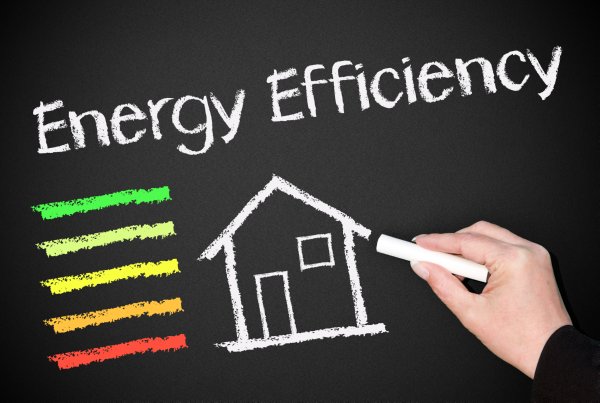Budget 2015 needs to show energy-saving agenda is still fully supported
Written by Mark Sait
Posted on March 17, 2015
It being St Patrick’s Day, thoughts turn towards shades of green and whether there will be broader help for energy savers in the UK Budget tomorrow.

The prospects admittedly do not look too bright – there is a general acceptance that this government is at the very least conflicted about the best ways to reduce energy consumption, manage water better, and cut carbon emissions in line with agreed targets.
Previous Budgets during the Coalition’s term in power have been increasingly light on promotion of strategies that help businesses, organisations and households reduce consumption of energy and water, so cutting carbon emissions and utility bills.
But we hope against hope that George Osborne will support measures or at least signal Government backing for a bigger range of energy saving solutions to encourage homes, SMEs and organisations across the public sector in particular to act this year.
At one level, there has been some progress under Ed Davey’s stewardship of the Department of Energy and Climate Change. The Secretary of State has overseen the introduction of the Green Deal, now showing signs of renewed life after a shockingly poor start and has supported the development of renewable energy options, often in the face of opposition from communities secretary Eric Pickles.
Mr Pickles refused 19 applications for onshore wind farms last year, possibly with an eye on voter support in the general election as well as concerns over unit costs of power.
Energy wastage
At the same time, a report by the AEA Ricardo consultancy says that the UK is falling behind other EU countries in the reduction of energy wastage coming 13th out of 28 countries and its methods of reporting should be legally scrutinised by Brussels.
The production and consumption of energy and water are strands of the “energy trilemma”, the urgent need to reduce use of utilities, cut CO2 emissions and ensure security of supply.
As the respected think tank IPPR emphasised this week, the Government has to be more proactive in reducing greenhouse gas emissions, as well as improving energy security. The IPPR says that to help achieve this, the Budget should commit the UK to freezing the carbon tax and decommissioning the UK’s remaining coal-fired power stations over the next 10 years.
Energy efficiency is more visibly supported at national strategy level but continues to be developed in piecemeal fashion. The most visible elements are the Green Deal and Energy Companies Obligation (ECO) initiatives, which have financially supported households with improvements mainly focused on heating and insulation.
Energy saving
It’s unlikely that the Chancellor will tinker further with these, having reduced the ECO commitment to energy efficiency measures that energy suppliers should provide for consumers. And the latest £70 million tranche of new cash for the Green Deal Home Improvement Fund was released yesterday (March 16th).
Households can get up to £5,600 each for energy-saving measures like solid wall insulation, double glazing and boiler replacement.
We hope that the Green Deal continues to develop and that there is an end to sharp practices, which have seen around 10% of companies involved in implementation being banned after breaking the code of practice.
We expect the effectively free Green Deal cash to be grabbed in record time, much like the last tranche and hope that it has the intended effect of reducing energy consumption across thousands of homes.
It would be an amazing turnaround if tomorrow the Budget offers any support for other energy-efficient solutions like LED lighting and water saving improvements like eco showers, eco taps and tap aerators.
LED lighting
We have consistently argued for financial support at the national level for households to install these very effective, simple energy-saving products. We understand that heating is a big part of a home’s energy consumption and that there is a moral element in the need to ensure vulnerable people can keep warm so the focus on this element of UK energy reduction is needed.
But we argue that energy use across the country would be quickly and permanently reduced through a campaign supporting quality LED lighting installations in every home.
Initial costs would be quickly repaid through energy savings of up to 85% from LED lamps. Similarly, eco showers, eco taps and tap aerators are simple, highly effective ways to reduce water consumption by more than 50%, reducing energy consumed in heating and pumping – again with rapid payback times.
Beyond the home, there should be much more coherent and extensive support for businesses, particularly SMEs, to carry out energy efficiency policies, focusing on LED lighting, water saving devices, intelligent lighting controls, smart heating controls and more efficient ways to control pumps, like variable speed drives.
ESOS extensions
An extension of the Energy Saving Opportunities Scheme (ESOS) would be a clear benefit. ESOS regulations currently cover only larger enterprises and the Department of Energy and Climate Change is actively seeking ways to help the smaller companies that form the larger part of the economy.
Without effective support for SMEs, there is very little hope of achieving the energy efficiencies that will go a long way towards the country meeting agreed CO2 emissions reductions – 40% by 2030 and 80% by 2050.
Let’s hope the Budget can at least lay some further foundations for an energy efficient economy and low carbon housing stock.